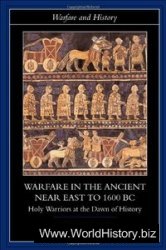Tragedy’s heroic and monarchical protagonists can be studied as historical, ethical, or religious problems with political dimensions. Thus, in a widely cited essay, Jean-Pierre Vernant takes a very long historical view, defining a tragic ‘‘moment’’ that pits heroic individuals against the values of the polis (Vernant 1988). Richard Seaford’s complex and challenging book Reciprocity and Ritual in some ways develops this idea, with an emphasis on religious discourse and a reminder that the values embodied in heroic tradition are older than archaic epic, which also attained the form in which we know it against the background of emerging poleis (Seaford 1994; cf. Seaford 2000). The tragic discourse of tyranny is interpreted variously. For example, some start by observing that disapproval of tyranny unites all elements of Athenian society, while others (not incompatibly) argue that the tyrant focuses anxieties fifth century Athenians felt about the individual autonomy they increasingly enjoyed (Raaflaub and Seaford, respectively, in Morgan 2003; see also in this volume, Forsdyke, chapter 15, and Liddel, chapter 9).
Another approach is to consider how the citizen (polites) is defined by what he is not. It is widely believed that Greeks were especially prone to antithetical thinking. The question is which ‘‘others’’ are most instructive, and in the study of drama, candidates include slaves, non-Greek foreigners, and non-Athenian Greeks (E. Hall 1989, 1997; Zeitlin 1990; Vidal-Naquet 1997). The fact that tragic principals are usually (mythic) Thebans, Argives, and so on encourages us to think about how tragedy achieves its effects for Athenians through these categories. Broadly speaking, two opposing tendencies appear to be at work: while others, by being excluded, can define and stabilize the Athenian’s identity, they also invite him to look beyond difference, think and feel inclusively, and expand the boundaries of his self. In assuming a masculine subject, I am doing what many believe tragedy itself does. For good reasons, the feminine is often seen as the other par excellence and crucial to Greek drama, in the interpretation of which it has received much sophisticated attention (e. g., Zeitlin 1996; Wohl 1998; Foley 2001; see also Sissa, this volume, chapter 7).
No attempt can be made to summarize work on ‘‘alterity’’ here, but a few points may be helpful.1 First, many insist that more is at stake in drama’s engagement with the other than language and thought (fundamental though these are). Stage figures possess something of the roundedness of real life, and in representing them, Greek actors (who were always male) literally ‘‘played the other.’’ The tragic chorus typically represents a marginal and/or powerless group (women, slaves, old men). That the men who played them were citizen amateurs and can be seen as modeling audience response implies that engagement with the other was meant to be intimate and intense for the spectators as well. In other words, alterity may be a privileged source of drama’s power (and thus its value as political thought), though the precise effect is hard to pin down. Second, the relative strength of what I am calling inclusive and exclusive tendencies is always a matter of interpretation. In practice, the inclusive (expansive, destabilizing) potential tends to be given most play in discussions of emotional effect, and to depend heavily on the representation of women and nonAthenian Greeks. More narrowly political readings tend to stress the exclusive (defining, stabilizing) tendency, asserting the need of Athenians, according to the circumstances, to see themselves as, on the one hand, not ‘‘barbarians,’’ not slaves, not Thebans, etc., and on the other, not divided further by class or partisan political tendency. In such readings, exclusion of women may also play a constitutive role, as (most would say) in Aeschylus’ Eumenides. Such assessments are always contestable: there are usually worthy arguments on both sides, and no reason to assume that the balance of forces is simple or constant. Third, although a focus on Athenian male citizens as the implied or majority audience makes sense for some purposes, it should not be forgotten that they had company (see below). Aside from bringing the effects on these other spectators themselves into the conversation, this leads to the question whether diversity in the audience complicates the response of Athenian citizens.
An obviously important aspect of the citizen’s self-definition in fifth century Athens is that he lives in a democracy, but how much this matters to drama is disputed. In the case of comedy, we are again dealing with a relatively overt relationship, reflected in the well-known story that Plato responded to the Syracusan tyrant Dionysius’ request for information about Athens’ politeia by sending him the works of Aristophanes (anonymous Life of Aristophanes 42-5). In the case of tragedy, whose fictional settings are nondemocratic, we must be alert first of all to such anachronistic allusions to democracy as may occur (Raaflaub 1989a), and then to more general evidence of democratic mentality. In both genres, a great many topics invite consideration under the heading ‘‘drama and democracy,’’ for example deliberation and decision-making, ways of resolving or containing conflict, the dynamics of leadership, and attitudes toward outsiders. Some of these will concern us later, but now is the time to say a little more about drama’s institutional setting, which has become a cornerstone of the argument that its contributions to political thought must be seen in the light of democracy.
All our plays were originally performed at Athenian festivals of the god Dionysus organized and paid for, in part, by the state (details in Pickard-Cambridge 1988; Csapo and Slater 1994). The performances were organized as a competition, and some of the responsibilities borne by officials had to do with maintaining a level playing field. Thus the state and its officials chose the poets who would compete, recruited and paid actors, appointed wealthy citizens as choregoi to train and equip the choruses, and awarded prize money. Meanwhile, (male) citizens were involved in various ways. At the City Dionysia, large numbers of them actually performed. Ten, chosen by lot (one per tribe) from a list approved by the Council, were empaneled as judges. After the festival, a special session of the Assembly examined the conduct of the officials who had run it and any incidents that had arisen.
Citizens were also involved, of course, as audience members, and seating may have reflected political and social divisions of the populace. Estimates of how many spectators the fifth century Theater of Dionysus held vary widely; it now looks as if earlier estimates as high as 17,000 will have to be brought down, perhaps to 7,000 or even lower (Revermann 2006: 168 n117). It is also uncertain how many of the audience were not Athenian citizens (Carter 2004: 10-13), whether the citizens in attendance were representative in socioeconomic terms (Sommerstein 1997; Bowie 1998: 58-60), and whether women attended at all (opposing views in Henderson 1991 and Goldhill 1994; cf. Goldhill 1997: 62-6). At some point, a fund was created to subsidize citizens’ purchase of tickets, but the date is disputed, as are the political implications for the periods before and after the practice began. There is good reason, then, to be cautious before asserting that the festival audience mirrored the democratic Assembly or law courts.2
In an influential article, Simon Goldhill explores the significance of four aspects of ‘‘pre-play ceremonial’’ (libation by elected generals, recognition of benefactors, display of tribute from the empire, award of armor to war orphans) (Goldhill 1987; cf. Connor 1989). Jasper Griffin objects that Goldhill’s emphasis on these framing events leads him to exaggerate the role of politics in the audience’s experience of the plays themselves (J. Griffin 1998). Goldhill counters that his case depends on the institutional setting as a whole, not just the preliminaries (Goldhill 2000a: 37-8). P. J. Rhodes and David Carter have recently reexamined the evidence and found some of it wanting (Rhodes 2003b; Carter 2004; cf. Henderson 2007). Rhodes argues, to my mind convincingly, that the salient aspect of drama’s institutional setting is that it is a polis, not that it is a democracy, and Carter makes a strong case that the ideology on display at the festival is best seen in the light of Athenian imperialism (cf. Rosenbloom 1995, 2006; Kurke 1998; Kennedy 2006; D. Carter 2007).




 World History
World History


![Black Thursday [Illustrated Edition]](https://www.worldhistory.biz/uploads/posts/2015-05/1432470149_1431513568_003514b1_medium.jpeg)






